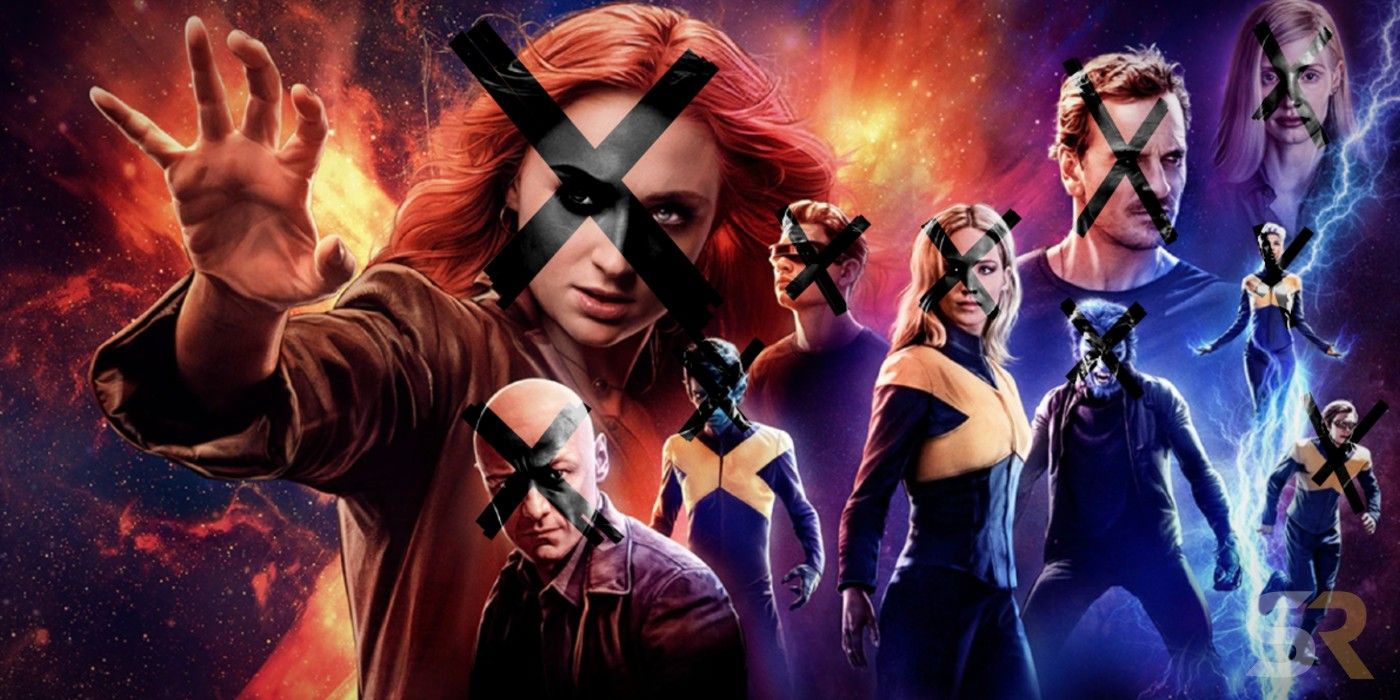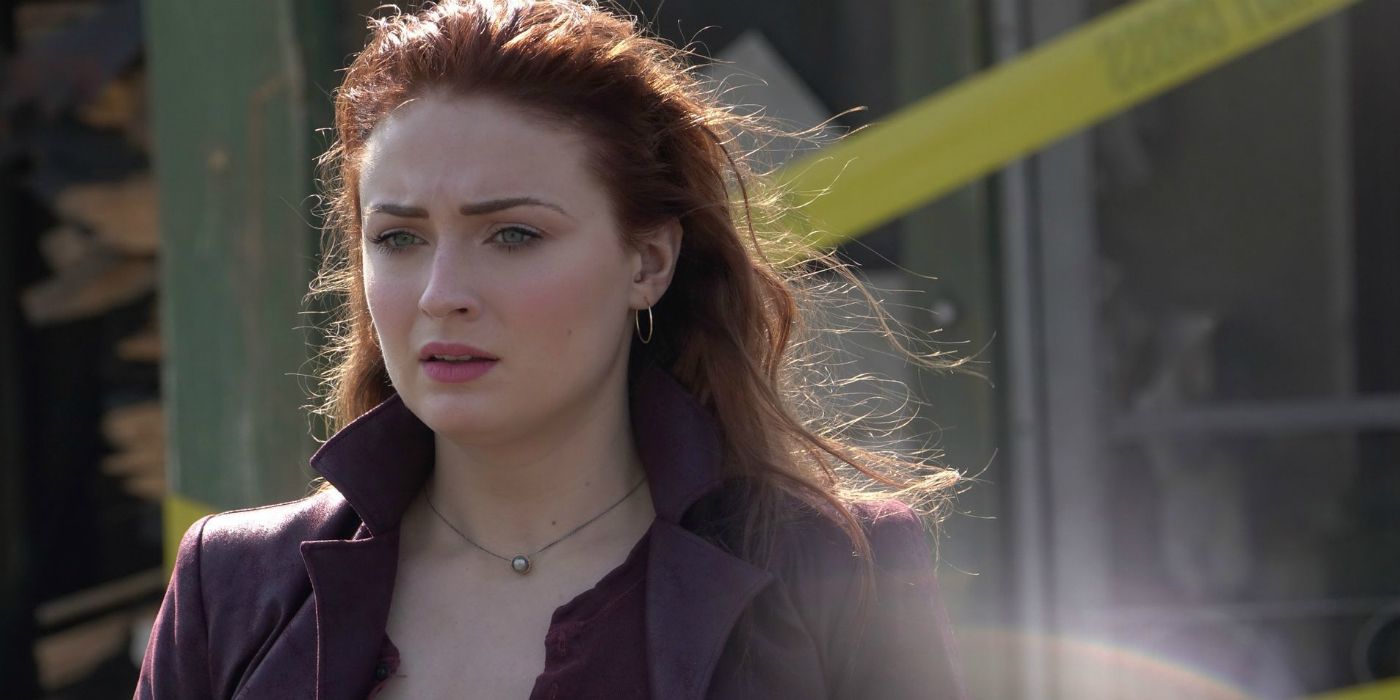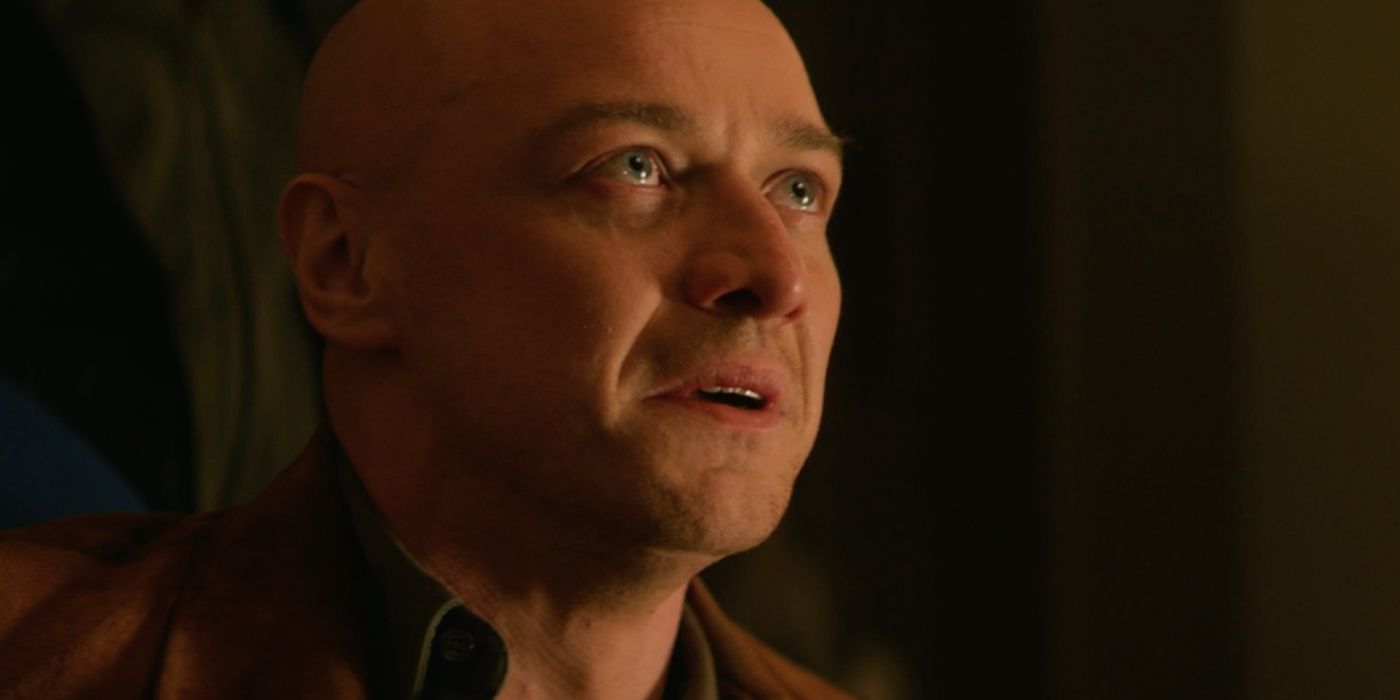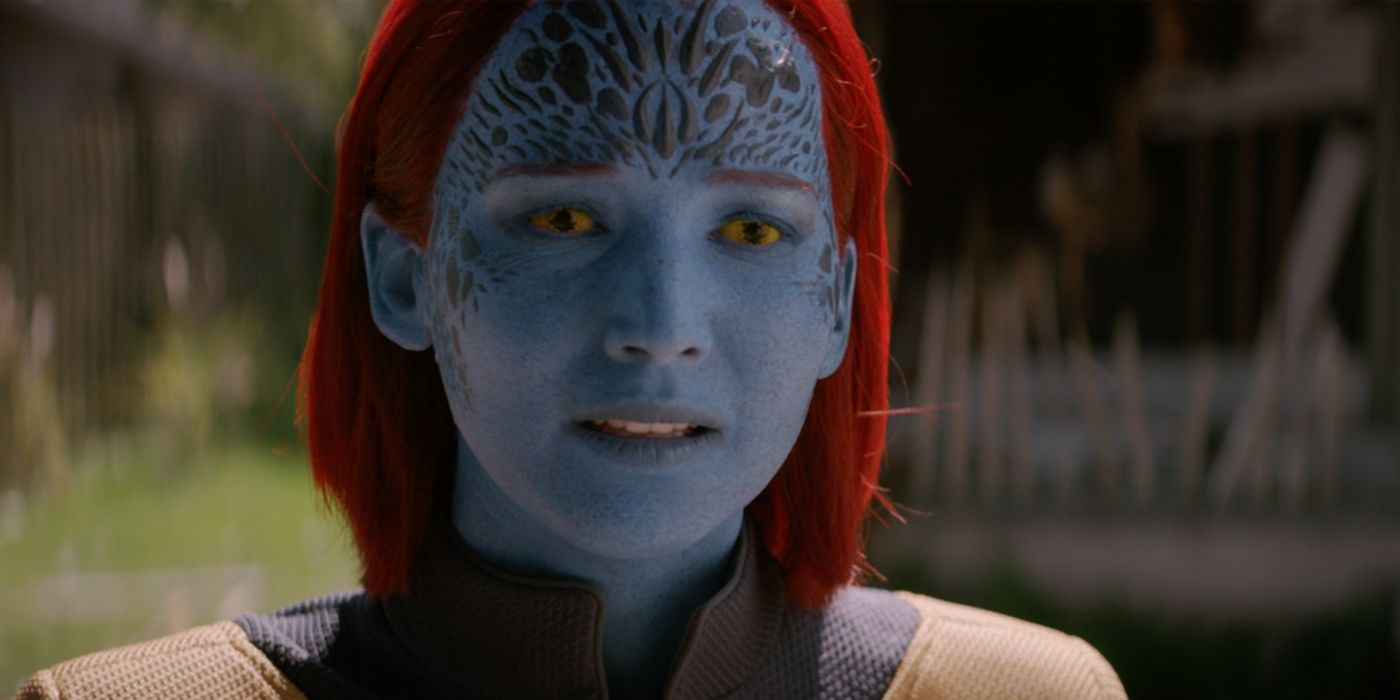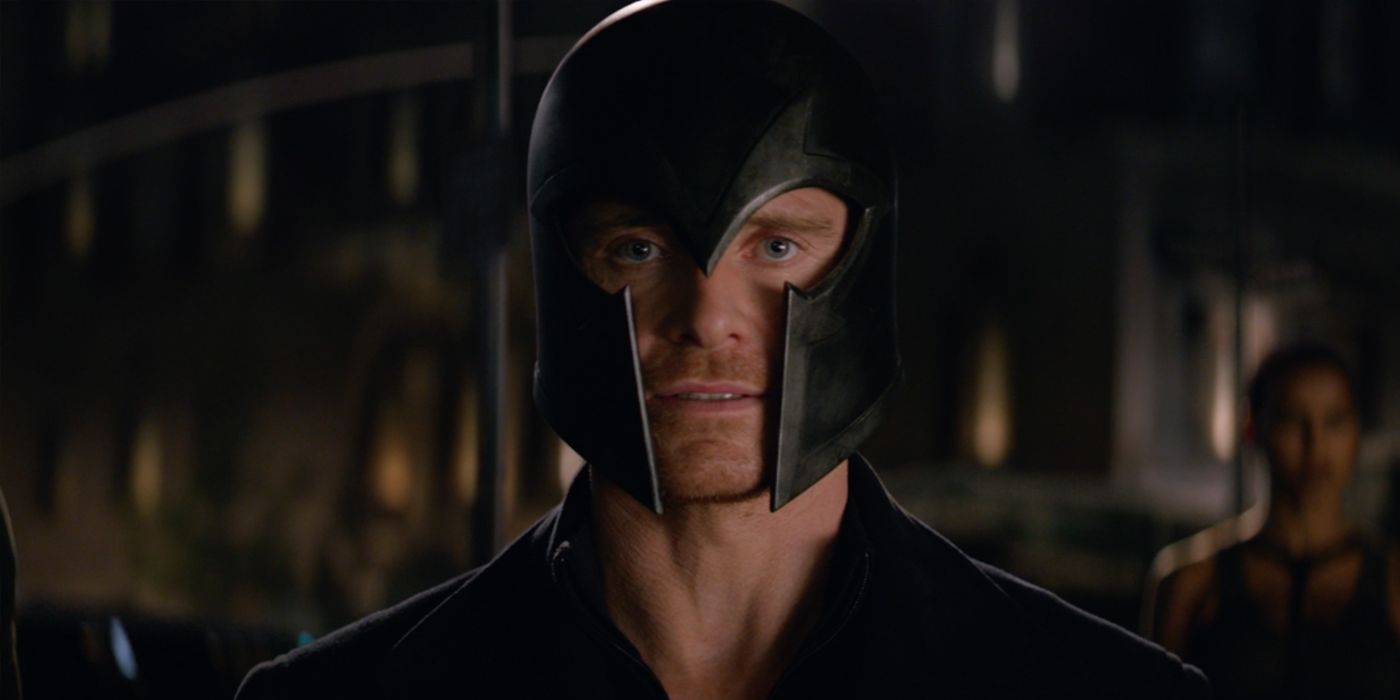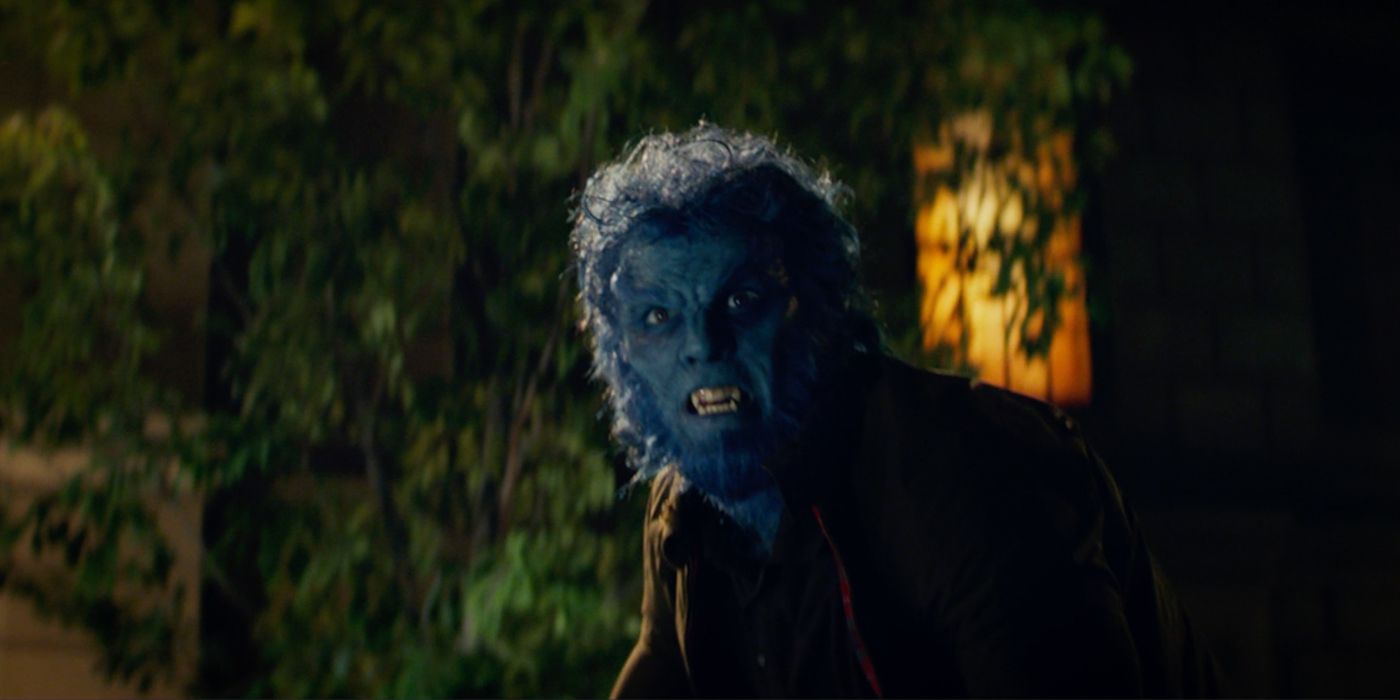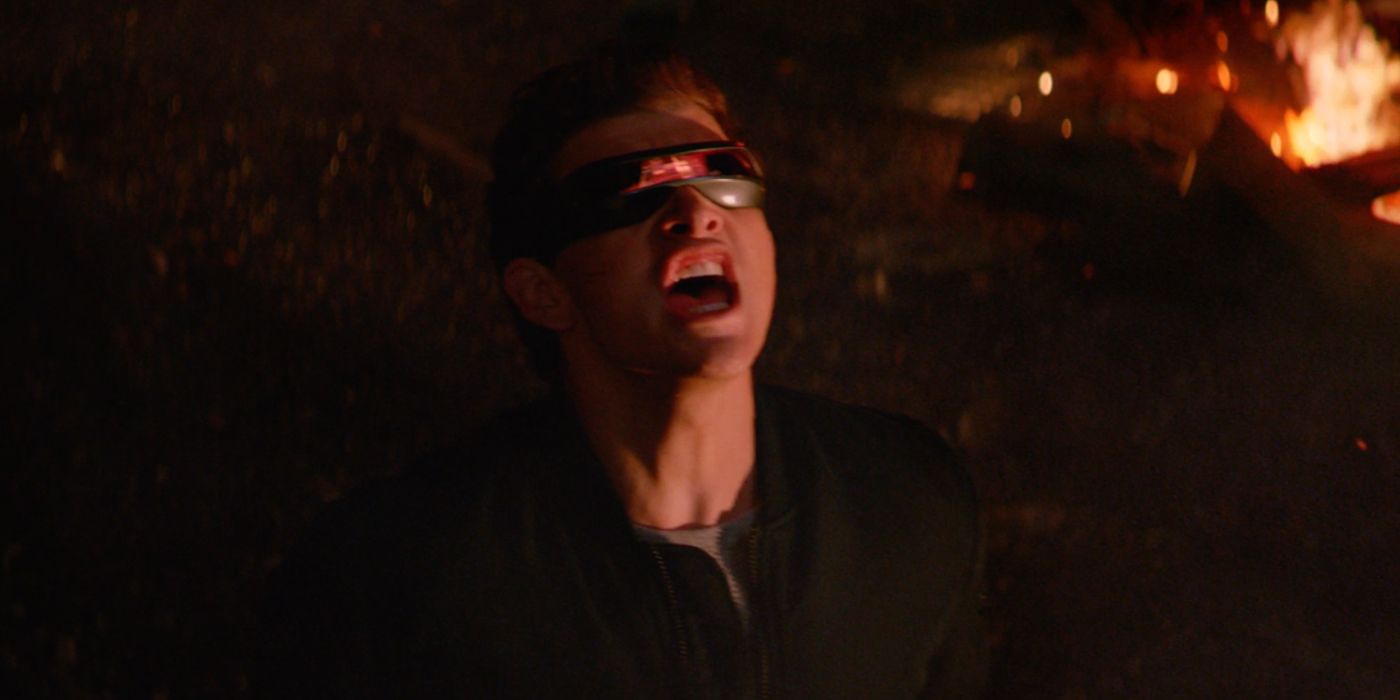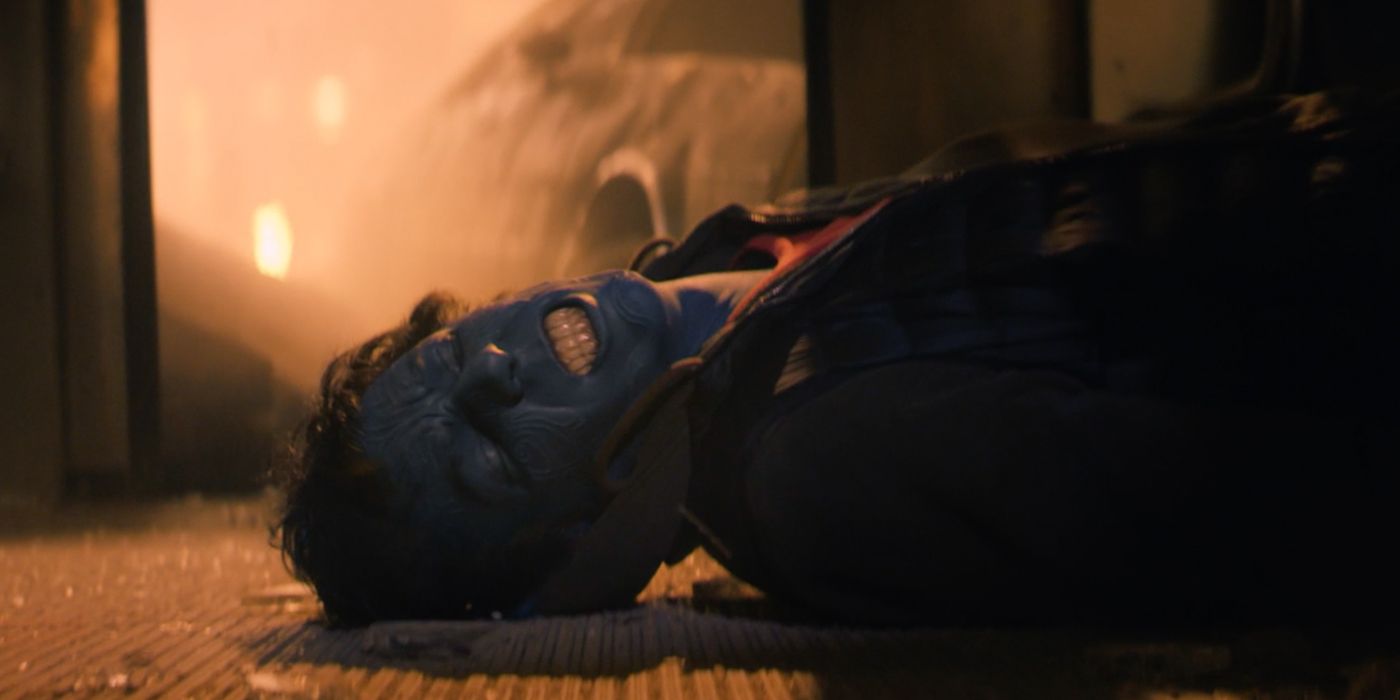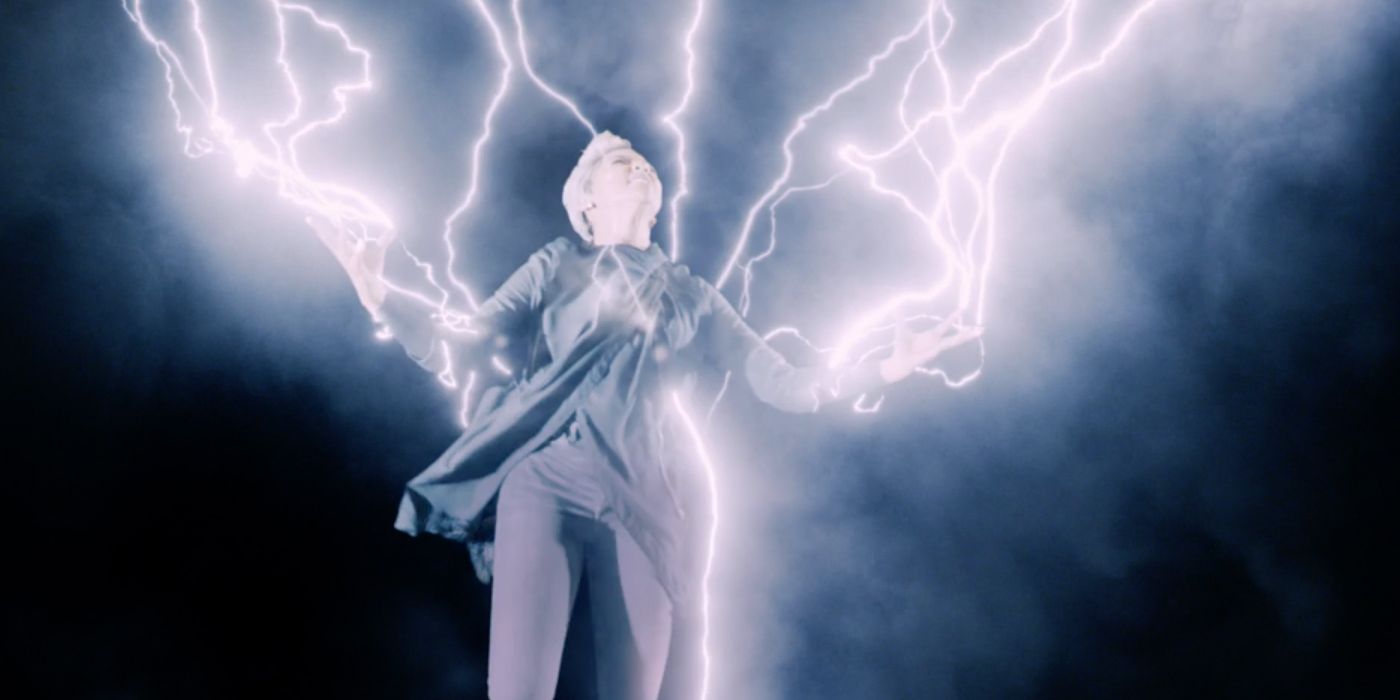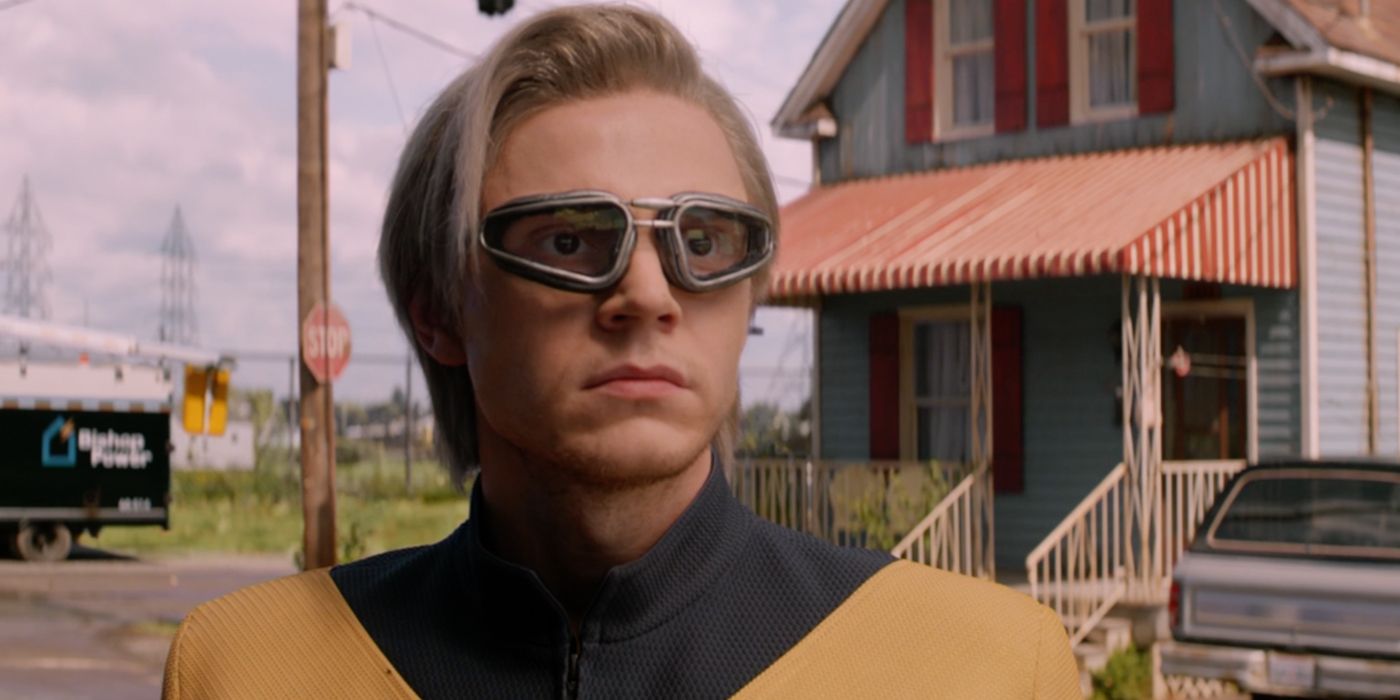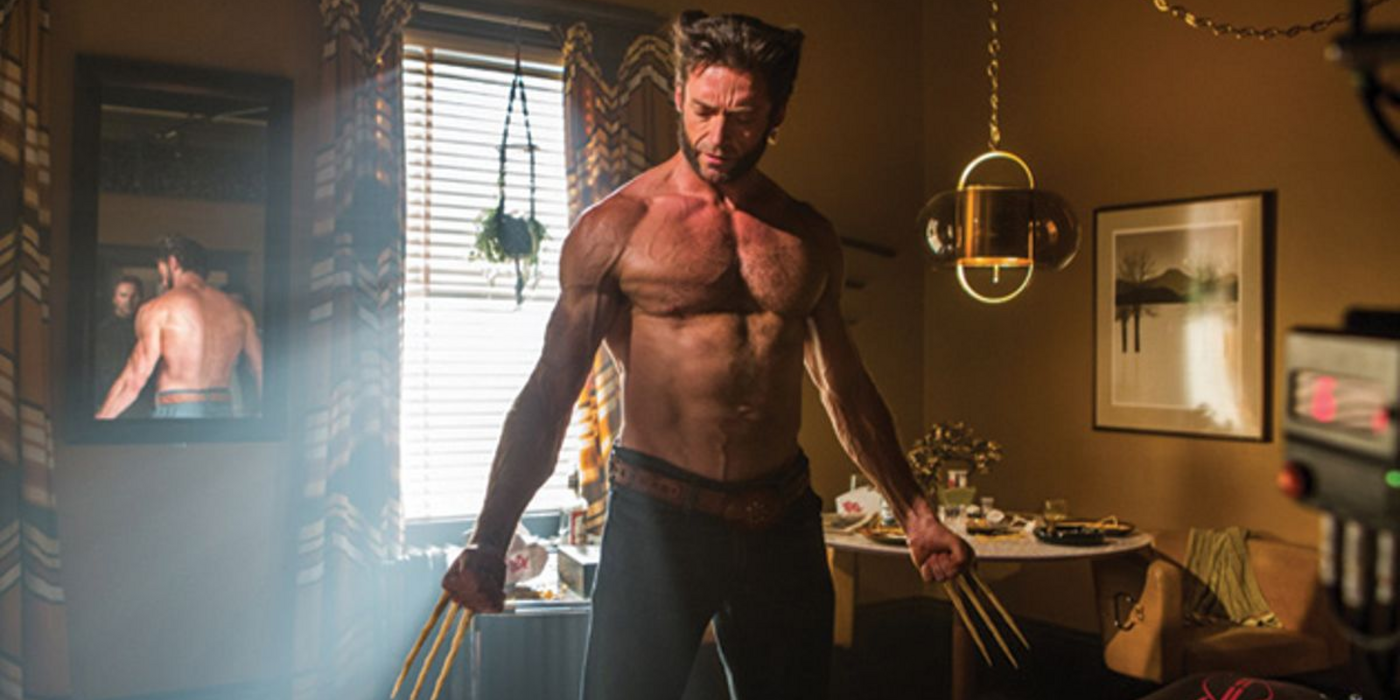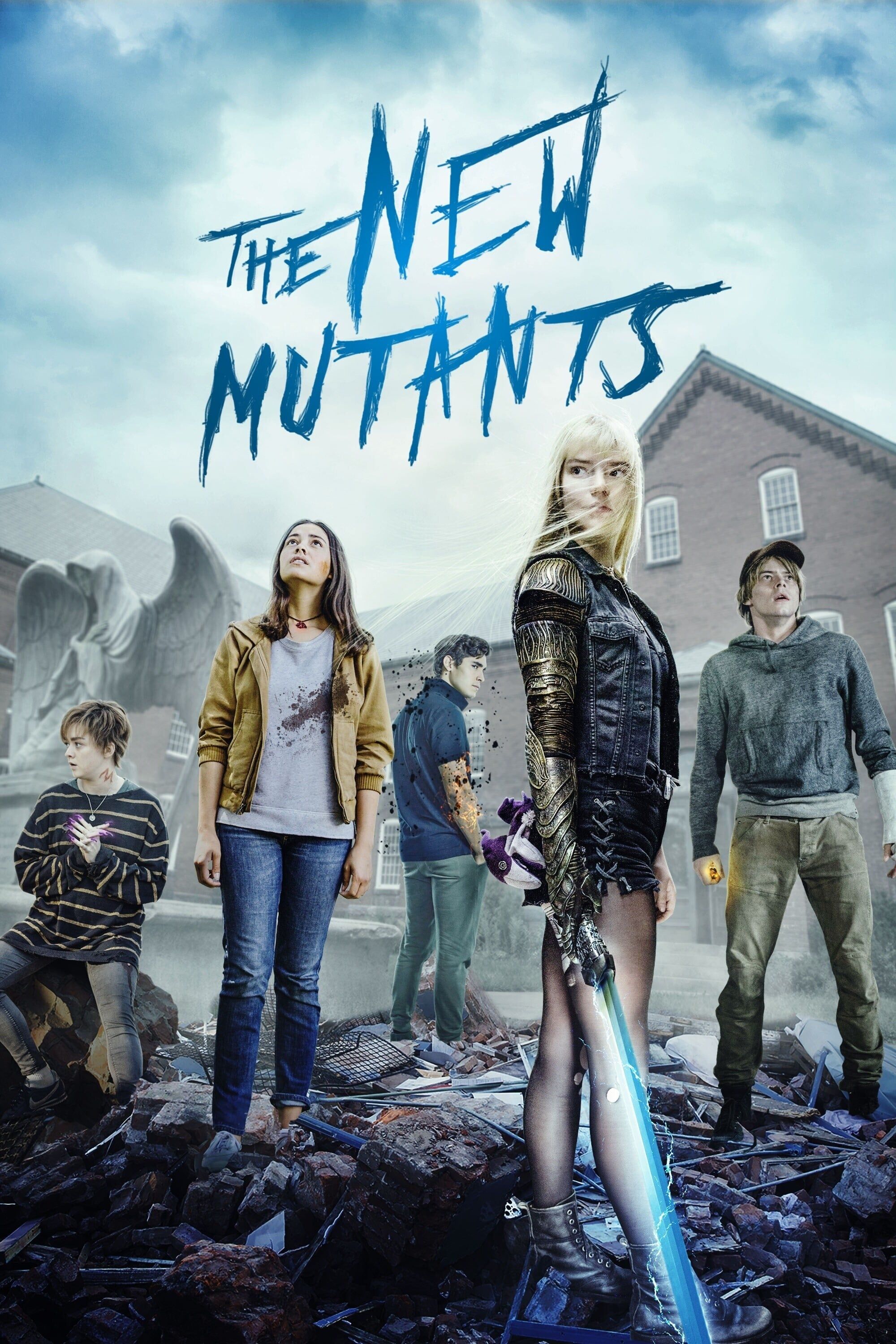X-Men: Dark Phoenix breaks literally every single X-Men character. Fox had originally intended X-Men: Dark Phoenix to mark a turning point in the franchise's history, a passing of the torch from the First Class stars of McAvoy, Lawrence, and Fassbender to the next generation. Reality intervened in the form of Disney's acquisition of the bulk of Fox's film and TV empire. As a result, X-Men: Dark Phoenix became the last of Fox's X-Men blockbusters, ahead of a reboot that will bring the X-Men into the MCU. In an ideal world, X-Men: Dark Phoenix would be a Last Hurrah for one of the most important superhero franchises of the last 20 years. In reality, there seems to be a general sense of disinterest in the film, with poor reviews and an even worse box office take.
One of Dark Phoenix's worst problems is its treatment of iconic X-Men characters. Naturally, every superhero movie plays liberties with the original comics to some extent, however faithful they attempt to be; comics and films are completely different mediums, and what works well in one medium won't translate effectively into another. That's especially the case with the Dark Phoenix Saga, which was written by Chris Claremont; as great a writer as Claremont may be, he has flaws, including excessive use of exposition. But the fundamental problem with X-Men: Dark Phoenix isn't simply that the film adapts the comics and the X-Men characters; it's that it breaks them.
It does so for every single character. Incredibly, there's only one character arc in X-Men: Dark Phoenix that really seems to work - and that's so problematic that it's a good job the franchise is ending. Let's take a look at all the major characters.
Jean Grey Was A Shadow Of The Real Dark Phoenix
First up is Sophie Turner's Jean Grey, who stands at the absolute center of X-Men: Dark Phoenix. Initial reports suggested this portrayal would be heavily influenced by Claremont and John Byrne's original take from the comics, which viewed Phoenix as a "schizoid identity." Turner invested a massive amount of time researching mental health issues such as Dissociative Identity Disorder and schizophrenia. "She's so complex in this movie," Turner observed. "I really don't think that I've done more research for a role than for this one, and I loved every minute of it."
The tragedy of X-Men: Dark Phoenix, though, is that the very complexity that excited Turner so much was essentially cut. It's unclear quite why Jean is falling from grace in the first place; her initial bursts of power are completely involuntary, including the one that killed Mystique. Perhaps the best explanation was provided by Turner herself, in an interview with CBR, where she suggested that the Phoenix Force should be seen as an allegory for addiction. "Being able to just kind of embrace that and be Phoenix and let it out is the best feeling in the world for her," she explained. "It’s like a drug." Viewed through that lens, X-Men: Dark Phoenix just about makes sense - but the problem is that the film itself doesn't make this at all clear. Rather, X-Men: Dark Phoenix appears to be a pretty trite "absolute power corrupts absolutely" - right up until the moment it abandons that idea, and Jean's love for her family somehow transcends it, allowing her to bond with the Phoenix Force.
Professor X's Deconstruction Causes Problems For His Future
X-Men: Dark Phoenix is a deconstruction of Xavier's Dream, and as such it shines a fascinating light on Charles Xavier's methods and motives. In the end, Professor X has to acknowledge that he is more of a villain than he is a hero; as noble as his goal may be, he's crossed far too many lines, and even used his powers to manipulate the ones he loves. The film ends with Xavier retiring as headmaster of Xavier's School, replaced by Beast, and he withdraws from the world, clearly a broken man.
Oddly, this is the one aspect of X-Men: Dark Phoenix that actually works. Since about the mid-'90s, the X-Men comics have enjoyed conducting just this kind of deconstruction of Charles Xavier, using very similar plot devices to question his morality. While it's a fascinating portrayal, the comics have proved that it has significant flaws; most notably, writers have struggled to work out a role for a post-deconstruction Xavier. Had they continued, the Fox movies would have faced the same challenge, not least because Xavier needs to somehow become Headmaster of Xavier's School again by 2023's vision of the future in X-Men: Days of Future Past in order to not break established continuity.
Mystique's Role Is Utterly Underwhelming
By now, there are pretty much no similarities between Jennifer Lawrence's Mystique and the character familiar to comic book readers. In the comics, Mystique is one of the X-Men's most dangerous villains, a shapeshifter who believes in mutant supremacy and is willing to kill in order to achieve her goals. In the movies, however, Mystique has gradually lost all complexity and nuance to become quite a flat, one-dimensional hero. Lawrence, for her part, his seemed increasingly disinterested with the character over the years, and in X-Men: Dark Phoenix she frankly feels as eager to leave the X-Men franchise as Mystique is to depart the team. Mystique's death scene was underwhelming to say the least, lacking any real emotional impact and feeling as though it existed purely to service the plot.
Magneto's Arc Is Tired And Familiar
Even Michael Fassbender's acting can't stop Magneto feeling more than a little tired. The Master of Magnetism's arc feels so very predictable; he starts off as an ambiguous figure, a tragedy pushes him to go rogue, he and the X-Men fight, and in the third act he switches sides and helps the X-Men against the real bad guys. It's literally the exact same arc he followed in X-Men: Apocalypse, except with Mystique's death as the motivator rather than the deaths of his wife and kids. The real irony is that Magneto is brought into this because Jean heads to him for advice on how to change; the film proves, in pretty short order, that absolutely nothing about Magneto has changed at all.
Again, the frustrating part of this is that Magneto could have been so much more. Magneto's status quo is lifted from one of the most interesting ideas in the comics, where he succeeded in becoming the leader of a mutant nation. There were reports that Fox initially planned to portray him as the head of what had essentially become a cult centered around him, but none of that complexity made it through into the movie.
Beast's Resolution Just Doesn't Make Sense
Mystique's death serves as the trigger for Beast's character arc; bitter and broken, he rejects Charles Xavier and decides that Jean has to die. It's unclear whether this is simply an act of revenge or because, in philosophical terms, he's concluded that such a powerful and volatile mutant is too great a threat to the world. Whatever the truth may be, Beast heads to Magneto and soon persuades the Master of Magnetism to help him try to kill Jean. Nicholas Hoult does a good job of selling the emotion, even if he isn't helped by stilted dialogue.
The real problem with Beast's arc, however, is with its resolution. When the film ends, Beast is the new headmaster of Xavier's School, which he rechristens after Jean Grey. It all seems rather odd, given X-Men: Dark Phoenix had demonstrated just how flexible Beast's morality is in a time of grief. What's more, his decision to rename the school after Jean sits uncomfortably; surely he'd have chosen to name it after Mystique, his lover and an iconic hero to mutants all over the world, the X-Men's field leader for the last decade? None of it quite joins up.
Cyclops Is Wasted - Again
The core problem with Fox's portrayal of Cyclops is the fact that, by the time of X-Men: Dark Phoenix, Scott Summers is supposed to have been an X-Man for just short of a decade. That means you'd have expected to see him grow as a character; and yet, there's no sign of that. Cyclops' core motivation is his love for Jean and his refusal to give up on her, but the portrayal feels like a lovestruck teenager rather than an adult in a committed relationship. What's more, X-Men: Dark Phoenix shows no hint of Cyclops as a leader; Mystique has been the X-Men's field commander over the last decade, and even after her death Scott Summers doesn't step up.
Curiously, X-Men: Dark Phoenix does include the single most creative use of Cyclops' powers in the movies to date. In one scene in the third act, Cyclops ricochets his optic blasts in an effective attack on Magneto. It's a move he's performed countless times in the comics - in one issue he ricocheted an optic blast over a dozen times, neutralizing a swarm of killer dodgem cars - so it's nice to see this idea make its way into the X-Men films at last. Unfortunately, it feels more of a last-second apology for the lack of serious development Cyclops has had over the duration of Fox's X-Men franchise.
Nightcrawler Breaks His Pacifist Role
X-Men: Dark Phoenix treats Nightcrawler particularly badly. In the comics, the passionate and enthusiastic Kurt Wagner is a committed Catholic, with a moral code that's unparalleled among the ranks of the X-Men. That makes X-Men: Dark Phoenix particularly disturbing, given it features an extended sequence in which Nightcrawler goes into a Berzerker rage. He goes on the kind of killing spree that would make Wolverine proud, using his tail to slit throats, and teleporting foes in front of trains so they can be run down. The scene is clearly intended to be a homage to X2: X-Men United, which featured a popular sequence in which Nightcrawler rampaged through the White House; that was nowhere near so problematic, however, given Nightcrawler was under the mental control of other forces at the time, and was deeply repentant afterwards. Anyone who's familiar with Nightcrawler from the comics will frankly find the Kurt Wagner of X-Men: Dark Phoenix to be utterly unrecognizable.
Storm's Power Changes Are The Most Development She Gets
Storm doesn't really exist as a character in X-Men: Dark Phoenix at all. There's some evidence Alexandra Shipp's Storm originally had something of an ambiguous role, switching sides between the X-Men and Magneto, but that was cut during reshoots. Instead, Storm simply feels flat; in one scene she tries to persuade Cyclops that Jean cannot be saved, and then a few minutes later she seems barely hesitant about joining the team in a battle to save her.
Oddly, the third act did have the potential to develop Storm as a character a little. The action takes place inside a train that's serving as a prison transport for the X-Men, an environment that isn't suited to Storm's powerset; what's more, in the comics, she suffers from claustrophobia, which could also have manifested in the fight. Instead of hinting at Storm's claustrophobia, or even seeing her use her powers more creatively in an enclosed space, X-Men: Dark Phoenix simply has Storm fly out of a hole in the side of the train. From that point on she just hovers overhead tossing lightning bolts at D'Bari attackers. Fox even seem to have forgotten that the train was supposed to be moving at speed, given she doesn't appear to be trying to keep up with it and her clothes and hair barely blow back.
Quicksilver Is Written Out At Speed
Finally, let's spare a thought for Quicksilver, a fan-favorite who fares even worse than Storm. Quicksilver plays an important role in the space rescue, although it's unclear why he didn't teleport back into the shuttle alongside Jean Grey and Nightcrawler - he could have picked up the last astronaut much more quickly than Nightcrawler, meaning Jean may never have been left behind in the first place. Quicksilver accompanies the X-Men on their trip to Red Hook, and makes a run at Jean, before being effortlessly tossed aside. He's injured, and actually written out of the rest of the film. It's possible Evan Peters simply wasn't able to make the reshoots, so they had to take him out.
Bonus: Even Wolverine Doesn't Come Out Undamaged
X-Men: Dark Phoenix is the first tentpole X-Men film not to include Wolverine, but oddly there's evidence he'd have been handled just as badly as the rest of the team had he appeared. In an interview with Rolling Stone, writer-director Simon Kinberg explained that it was because he'd have been unable to resist using Logan as a love interest for Jean Grey. "If you know the Dark Phoenix story, you’d want to really service the love story between Logan and Jean," Kinberg noted. "And I think the notion of Hugh Jackman, as great as he looks for his age, and Sophie Turner — it didn’t sit well with me. Or anyone else!"
It sounds like a convincing answer, but it's undermined substantially by the fact that the "love story" between Wolverine and Jean isn't an important part of the comic book version of the Dark Phoenix Saga at all. In fact, in the comics Logan and Jean haven't really had that much of a romance; Wolverine has been more of a creepy stalker than a would-be suitor. While the two have shared a few kisses over the years, Jean's heart has always belonged to Cyclops, and the one time she decided she wanted to try being in a relationship with Wolverine - because of the breakdown of her marriage - Logan turned her down flat. The X-Men film franchise has always seemed obsessed with the idea that Wolverine and Jean Grey should be a couple; in fact, one of the biggest flaws in X-Men: The Last Stand was the hurried way the movie killed off Cyclops in order to pursue that. It's disappointing to see that they still think that even over a decade later.

